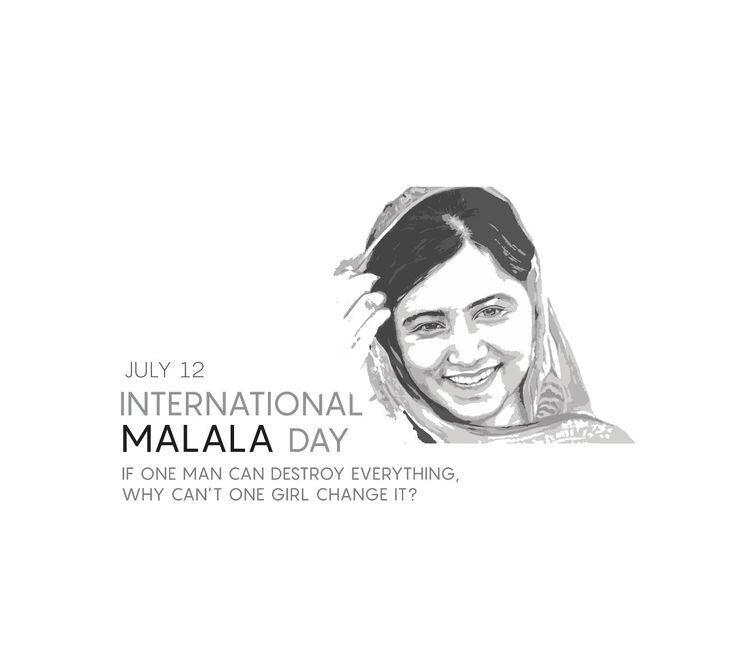Malala Day: A Celebration of Courage, Education, and Global Impact
Introduction
Malala Day is an annual observance on July 12th that celebrates the life and legacy of Malala Yousafzai, the youngest-ever recipient of the Nobel Peace Prize. This day not only honors her remarkable journey but also aims to raise awareness about the ongoing struggle for education and gender equality worldwide. Malala’s story is one of incredible resilience, defiance against oppression, and an unwavering commitment to ensuring that every girl has the right to go to school.
In this article, we explore the significance of Malala Day, its history, the impact of Malala’s work, and how this day continues to inspire millions of people around the world.
History of Malala Day
Malala Day was first celebrated in 2013 after Malala survived an assassination attempt by the Taliban in Pakistan, which occurred in 2012 when she was just 15 years old. Malala was targeted for advocating girls’ education and standing up to the Taliban’s restrictions on girls’ schooling. After surviving the attack, Malala became an international symbol of courage and determination.
In 2013, Malala addressed the United Nations on her 16th birthday, marking the occasion as Malala Day. Her speech was a call to action for global leaders to prioritize education and equality, and it received worldwide attention. Since then, Malala Day has become an annual event, dedicated to continuing the work that Malala started and advocating for the rights of girls and women around the globe.
Key Facts About Malala Day
- Celebrating Malala’s Birthday: Malala Day coincides with Malala Yousafzai’s birthday on July 12th, making it a deeply personal day for her as well as a global observance of her activism.
- Focus on Education: Malala Day shines a spotlight on the importance of education, particularly for girls who are often deprived of this basic right. It serves as a reminder of the millions of children worldwide who still lack access to quality education.
- Global Campaign for Girls’ Education: The Malala Fund, established by Malala and her father Ziauddin Yousafzai, works to ensure girls worldwide receive 12 years of free, quality education. The organization focuses on the most vulnerable girls living in areas where education is restricted due to poverty, conflict, or cultural barriers.
- Malala’s Journey: After the attack, Malala continued her education and advocacy work, eventually becoming the youngest-ever recipient of the Nobel Peace Prize in 2014 at the age of 17. Her platform continues to amplify the voices of young girls and promote equality through education.
- Recognition of Global Efforts: Malala Day also honors the global movement toward educational equality and celebrates individuals, organizations, and governments that are working to make education accessible to all.
Significance of Malala Day
- Promoting Girls’ Education: At its core, Malala Day emphasizes the right to education for every girl, regardless of where she is born. Malala has long championed the idea that education is the key to breaking the cycle of poverty, empowering young women, and lifting communities out of inequality. Malala’s message is that when girls are educated, they become powerful change-makers in their societies.
- Global Advocacy for Equality: Malala’s activism also highlights gender equality. In many parts of the world, girls still face barriers such as early marriage, poverty, and political instability, which prevent them from attending school. Malala Day serves as a powerful reminder that gender equality is crucial for a better world.
- Empowering Youth: Malala Day resonates with young people globally, particularly youth who are passionate about social change. The day is not only about celebrating Malala’s achievements but also encouraging young people everywhere to stand up for what they believe in and become advocates for justice and equality.
- Raising Awareness: Through Malala Day, individuals and organizations raise awareness about the educational barriers facing millions of children. This awareness is critical in influencing policy change and increasing investments in education, particularly for marginalized communities.
- Inspiring Action: Malala’s story inspires action both at the grassroots level and from policymakers. The Malala Fund, for example, is instrumental in pushing for legislative reforms and greater investments in education systems worldwide. This day serves as a catalyst for positive change, encouraging individuals and institutions to support educational initiatives.
Daily Life Impact of Malala Day
- Personal Reflection: On Malala Day, people reflect on the importance of education in their own lives. Many individuals take this day to recommit themselves to the goal of equal access to education for all, often through volunteering, donating, or advocating for educational reforms.
- Increased Advocacy: Schools, universities, and youth organizations often organize activities like fundraisers, debates, and speeches on Malala Day to promote education. These events create awareness and foster a sense of responsibility to ensure that every child can go to school.
- Global Solidarity: The observance of Malala Day brings together people from various cultural and social backgrounds, fostering global solidarity for the common cause of girls’ education. It provides a platform for people to learn from one another and take collective action to overcome the barriers that prevent education for all.
- Empowering Young Women: Malala Day has a lasting effect on young women, who often find inspiration in Malala’s journey. Her determination and resilience serve as a reminder to young women around the world that they can overcome adversity and achieve greatness, no matter their circumstances.
How to Observe Malala Day
- Educate and Raise Awareness: On Malala Day, people around the world participate in events that promote education, especially for girls. These events may include fundraisers, panel discussions, screenings of documentaries, or social media campaigns that help raise awareness about the ongoing struggle for girls’ education.
- Support the Malala Fund: A powerful way to honor Malala Day is by supporting the Malala Fund, which works to provide education opportunities for girls in developing countries. Donations, advocacy efforts, and partnerships with the fund can help further its mission of education equality.
- Organize Local Events: Communities, schools, and organizations often host local gatherings on Malala Day. Whether it’s a walkathon, art exhibition, or a youth conference, organizing events that celebrate Malala’s work can contribute to spreading her message and increasing education access.
- Amplify Malala’s Message: Social media platforms are a great way to share Malala’s story and spread the message of education for all. Using hashtags like #MalalaDay or #BooksNotBullets, you can join the global conversation and show support for girls’ education worldwide.
FAQs About Malala Day
1. What is the significance of Malala Day?
Malala Day is significant because it honors Malala Yousafzai’s tireless advocacy for girls’ education and gender equality. It raises global awareness about the barriers to education faced by girls and inspires action to ensure that every child has the right to an education.
2. How can I contribute to Malala’s cause?
You can contribute by donating to the Malala Fund, advocating for girls’ education, attending or organizing events, and raising awareness through social media.
3. What are some of the key achievements of Malala Yousafzai?
Malala’s key achievements include becoming the youngest Nobel Peace Prize laureate, founding the Malala Fund, and delivering a powerful speech at the United Nations advocating for girls’ education.
4. Why is education so important for girls?
Education provides girls with the knowledge and skills needed to escape poverty, improve health outcomes, and become empowered leaders in their communities. Educating girls also leads to societal benefits, such as improved economic development and gender equality.
Conclusion
Malala Day is a celebration of the remarkable courage of Malala Yousafzai and a call to action for people worldwide to stand up for the right to education. Her story is a testament to the power of education in transforming lives and communities. On this day, we are reminded that the fight for gender equality and access to education is far from over, but with the collective efforts of individuals and organizations, we can create a world where every girl has the opportunity to reach her fullest potential.










